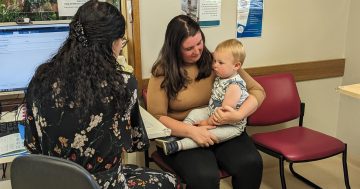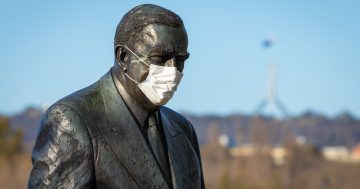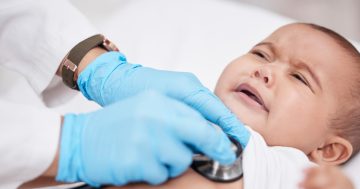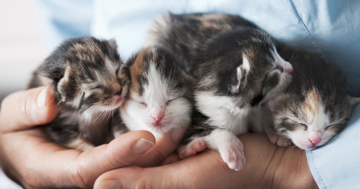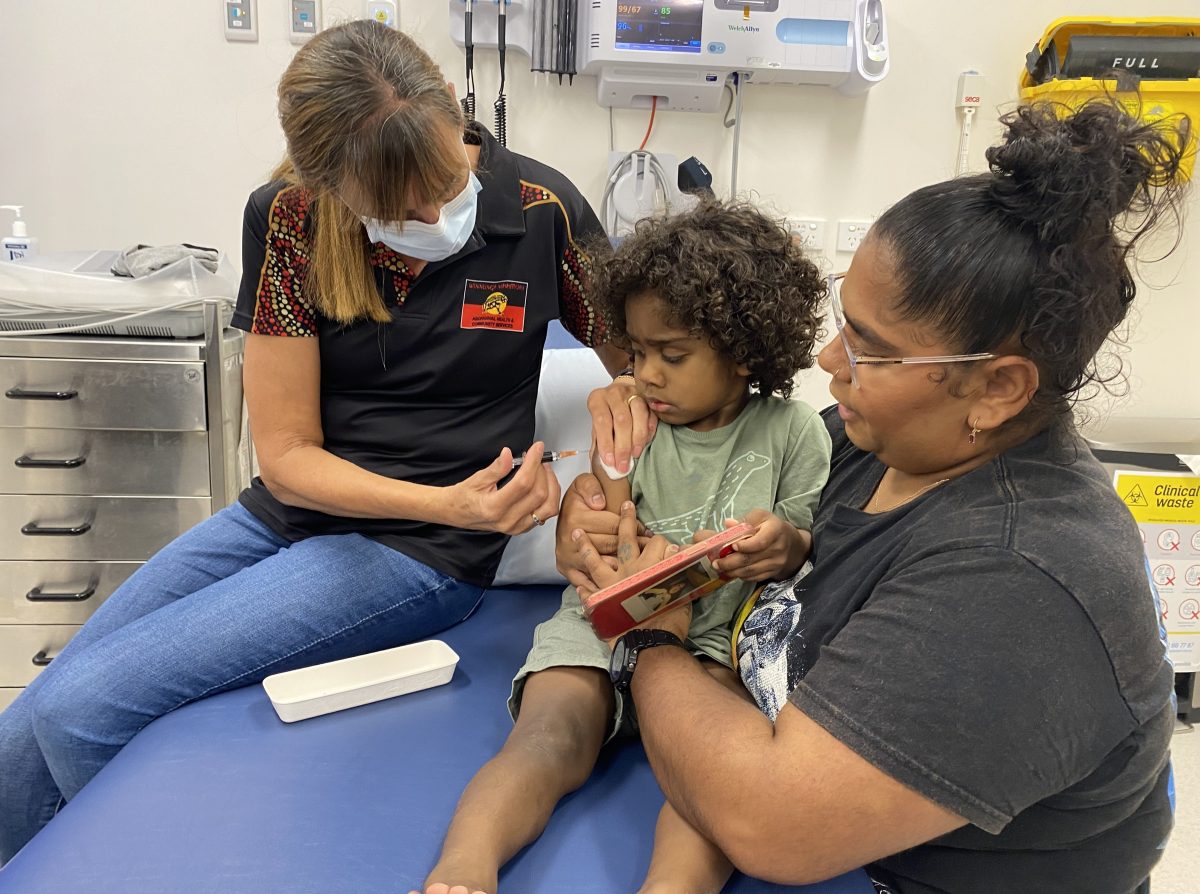
Gugu-badhun and Yuin woman Yulcaila Hoolihan-Mongta and her son Allamurra (2) get their flu shots from nurse manager Michele Clarke at Winnunga Nimmityjah Aboriginal Health Services. Photo: Claire Fenwicke.
The Territory’s pharmacists, doctors and nurses now have access to the latest influenza vaccine with all Canberrans urged to get protected this winter.
The flu season typically runs from June to September but there’s already been an uptick in the number of respiratory illnesses circulating in the Territory.
Canberra had 114 notified flu cases in the January to March quarter in 2023. This compares to 418 cases for the same time period in 2024.
We saw 88 cases of respiratory syncytial virus (RSV) in the first quarter of 2023, compared to 289 in the first quarter this year.
Population Health Minister Emma Davidson said now was the time to think about winter wellness, before the cold weather really hit.
“Everyone’s body reacts to each virus differently and so it’s important to get your vaccinations every year at the start of the season, before you’ve come in to contact with lots of people who might have these viruses,” she said.
“We have the power to protect the people around us by maintaining our vaccinations. It might be nan, it might be someone at work who has someone at home who is immunocompromised, it might be a person you’re passing in the street and you don’t even know what health conditions they might have.
“We all have a responsibility to look after the people around us.”
First Nations people are known to be particularly vulnerable to the impacts of the flu.
Complications can include developing pneumonia or sepsis and can result in hospitalisation.
Winnunga Nimmityjah Aboriginal Health Services senior medical officer Dr Eric Sambaiew said the more recent strains appeared to be making people sicker.
“A lot of us have noticed, since the pandemic, the flu has been worse in the past couple of years like many other viruses,” he said.
“I think it gives even more impetuous to come and get vaccinated now.”
Winnunga Nimmityjah deputy CEO Simon Costello acknowledged a lot of different theories about the benefits of vaccinations had come out during the height of the COVID-19 pandemic. But he urged Canberra’s First Nations community members to come in and have a chat before deciding what option would be right for them.
“There’s a lot of things going out on social media and sorts of different discourse [occurring] … my advice is to talk to a professional, get best [and] most up-to-date information you can and make a good choice for you and your family,” he said.
“We base our services on clinical evidence, and we just want to give people good information when they turn up, give them the option to make a good choice that’s right for them.
“COVID is everywhere, flu is everywhere, [so] we just need to make sure we make good choices and give our First Nations community the best information we can so they take the best option that’s right for them.”
The influenza vaccine is free for First Nations people aged six months and older under the National Immunisation Program.
It is also free for all children aged six months to under five years, people aged 65 years and older, pregnant people and those aged six months and older with underlying medical conditions. Some providers may charge a fee to administer the vaccine.
You can check your COVID-19 vaccination status while receiving your flu shot.
As for protection against RSV, there’s currently no vaccine available under the National Immunisation Program.
The non-live vaccines Arexvy and Abrysvo are registered for use in Australia and are both approved for people aged 60 and over.
Arexvy is recommended for people aged 75 years and older, First Nations people aged 60 and older, and adults over the age of 60 who have medical conditions that increase their risk of severe RSV disease. These options can be discussed with a doctor or pharmacist.
But given RSV is the most common cause of bronchiolitis in children, and the RSV-associated hospitalisation rate is highest in infants under six months of age, more options are being explored to protect young Australians.
There are three state-funded programs for the recently approved monoclonal antibody product Beyfortus (nirsevimab) for infants – for all newborn infants and medically at-risk children in Queensland and Western Australia and a highest-risk infants-only program in NSW.
Acting ACT Chief Health Officer Dr Sally Singleton said the Territory was currently considering newer options to protect infants against RSV in Canberra.
“We’re working closely with our colleagues in NSW about options for some of our most at-risk infants,” she said.












